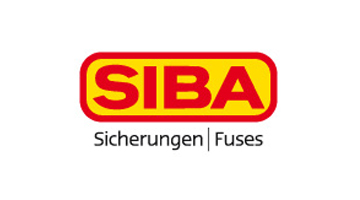Luenen / Ruhr. Renowned companies around the world supply the SIBA GmbH with fuses for the industry, which the medium-sized enterprise develops and produces exclusively in Germany - in Lünen on the edge of the Ruhrgebiet. In order to maintain Germany as a production location and set it up for the future, the company is now optimizing its inventory management with software solutions from Simmeth System.
"In global competition, we have to convince with the highest quality, but above all with speed and reliability," stresses Werner Barz. He is head of production and production planning: his fuses are distributed by the finished goods and parts warehouse in Lünen through twelve international sales offices all over the world.
Tens of thousands of fuses are available "just in time" today. This is indispensable for the customers of the company, which has existed for 67 years: As soon as the fuse switches in a system or machine, quick replacement is required so that, for example, the production flow is not disturbed. "The right products must be available in sufficient quantities from stock," is the objective.
Inventory is now optimized by software from Simmeth System GmbH, the so-called SC-Manager. Since its introduction, a redistribution has taken place in the warehouse: new inventories are being built up, overstock has been identified and sold off. The system automatically calculates which products are expected to have short or long-term needs.
"We want to be competitive in the long term"
"Where there is a short-term need, we have to store more and, in some cases, high-priced products. However, backups that are not needed immediately are no longer part of the inventory and are only produced on order, "explains Werner Barz. "Mere savings were not our goal. Inventory optimization is geared towards sustainability. We want to be competitive in the long term. "
Every night, the system accesses the computer-controlled warehouse management; the evaluation takes place daily. "This enables SIBA to react to market fluctuations and identify trends at an early stage," explains Andreas Schwarz, project manager at software developer Simmeth. The solution is based on a segmentation of the product spectrum according to availability and inventory risk, which is worked out together with the customer: "Then we determine the storage levels and planning procedures and the software calculates the optimal availabilities and safety stocks." Even after the system has been introduced the be adjusted flexibly.
The first production areas of SIBA GmbH, which employs 330 people in Germany, have already been converted to the new software. The interim conclusion: "We are experiencing a stock shift, stocks are much better today. With this result and the up-to-date numerical data, we can also convince Sales, "says Werner Barz.
While stock optimization is predominantly in the background, a second software developed by Simmeth is all the more prominent: anyone walking through the production halls in Lünen hardly ever discovers a computer screen without the so-called "KPI monitor". With luminous traffic lights, this shows at a glance the capacity and utilization in production.
All on-site manufacturing planners and engineers can see in just a few clicks how production will develop over the next few weeks, planning capacity early and deploying staff where needs arise. The software currently uses the key figures required for the calculation from the ERP system of the company. "The software is intuitive to use and provides a great overview. We did not want a forest of numbers, which everyone interprets differently! ", Says the production manager. Thanks to the new software solutions, it is now possible to react flexibly - to the short-term requirements of customers as well as to the long-term development of the market: "This is a huge competitive factor!"

